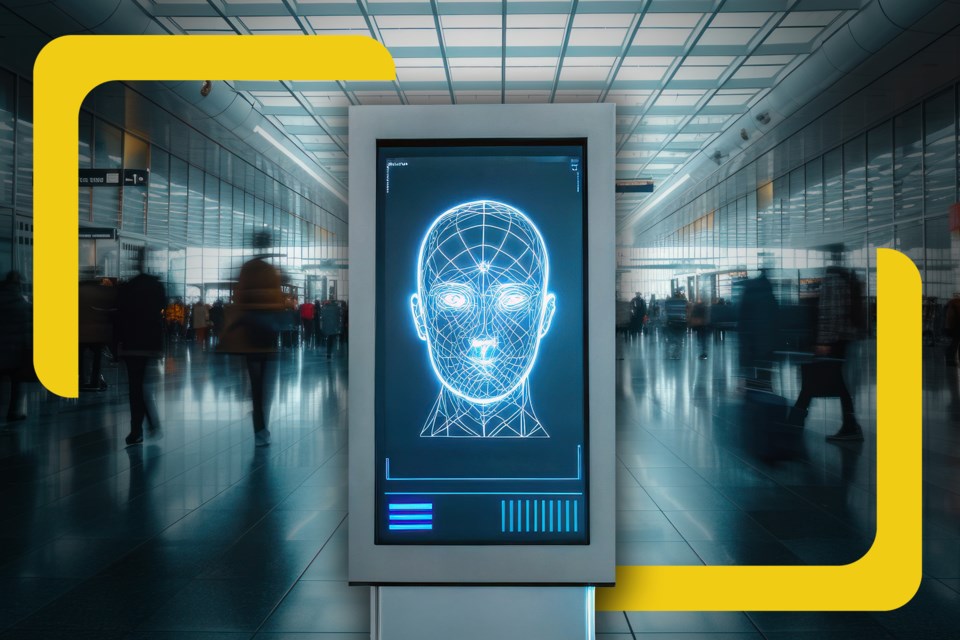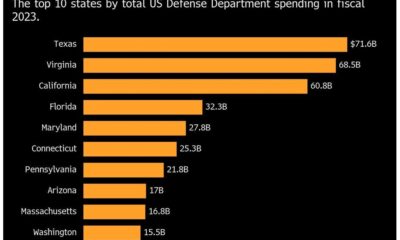Politics
U.S. Expands Facial Biometrics Program for All Canadian Travelers

The U.S. Department of Homeland Security (DHS) has announced a significant change to its travel policies, now requiring all non-citizens, including Canadians, to participate in a facial biometrics program upon entry into the United States. This updated requirement aims to enhance border security and streamline the identification process at various ports of entry.
The decision, discussed in detail on Village Media’s ‘Closer Look’ podcast, reflects a broader trend towards increased use of technology in managing immigration and border control. According to the DHS, implementing facial recognition technology will not only improve security but also facilitate a more efficient travel experience for visitors.
Details of the Facial Biometrics Program
Starting from November 2023, all travelers entering the U.S. will be photographed as part of the facial biometrics program. This initiative is designed to capture and analyze facial features, allowing border officials to verify identities against various databases. The program applies to individuals arriving by air, land, or sea.
This move follows ongoing discussions about enhancing security measures while balancing the need for efficient travel. The DHS emphasizes that the use of facial recognition technology has proven effective in reducing wait times at border crossings. In a statement, the agency noted, “The implementation of this program is essential to maintaining national security while ensuring that our borders remain welcoming to legitimate travelers.”
Impact on Canadian Travelers
Canadian travelers, who often comprise a significant portion of visitors to the U.S., will need to prepare for this new requirement. Previously, facial recognition technology was applied selectively, primarily to specific groups or locations. Moving forward, the program will encompass all non-citizens, which includes Canadians arriving for tourism, business, or other purposes.
The change has sparked discussions within Canada about privacy concerns and the implications for cross-border travel. Privacy advocates argue that such measures could lead to increased surveillance and data collection. In response, the DHS has assured the public that the information gathered will be used solely for border security purposes and will follow strict privacy guidelines.
While the new policy aims to bolster security, it also raises questions about how effectively these measures will be implemented and the potential impact on the traveling public. Travelers are encouraged to stay informed about the requirements ahead of planned trips to the U.S.
The DHS’s commitment to enhancing border security through technology reflects a global trend among nations striving to adapt to evolving security challenges. As the situation develops, Canadian travelers can expect to learn more about how these changes will affect their travel plans and what steps they should take to comply with the new facial biometrics program.
-

 World3 months ago
World3 months agoScientists Unearth Ancient Antarctic Ice to Unlock Climate Secrets
-

 Entertainment4 months ago
Entertainment4 months agoTrump and McCormick to Announce $70 Billion Energy Investments
-

 Lifestyle3 months ago
Lifestyle3 months agoTransLink Launches Food Truck Program to Boost Revenue in Vancouver
-

 Science4 months ago
Science4 months agoFour Astronauts Return to Earth After International Space Station Mission
-

 Technology2 months ago
Technology2 months agoApple Notes Enhances Functionality with Markdown Support in macOS 26
-

 Top Stories2 weeks ago
Top Stories2 weeks agoUrgent Update: Fatal Crash on Highway 99 Claims Life of Pitt Meadows Man
-

 Sports3 months ago
Sports3 months agoSearch Underway for Missing Hunter Amid Hokkaido Bear Emergency
-

 Politics3 months ago
Politics3 months agoUkrainian Tennis Star Elina Svitolina Faces Death Threats Online
-

 Technology3 months ago
Technology3 months agoFrosthaven Launches Early Access on July 31, 2025
-

 Politics3 months ago
Politics3 months agoCarney Engages First Nations Leaders at Development Law Summit
-

 Entertainment3 months ago
Entertainment3 months agoCalgary Theatre Troupe Revives Magic at Winnipeg Fringe Festival
-

 Politics2 weeks ago
Politics2 weeks agoShutdown Reflects Democratic Struggles Amid Economic Concerns



















